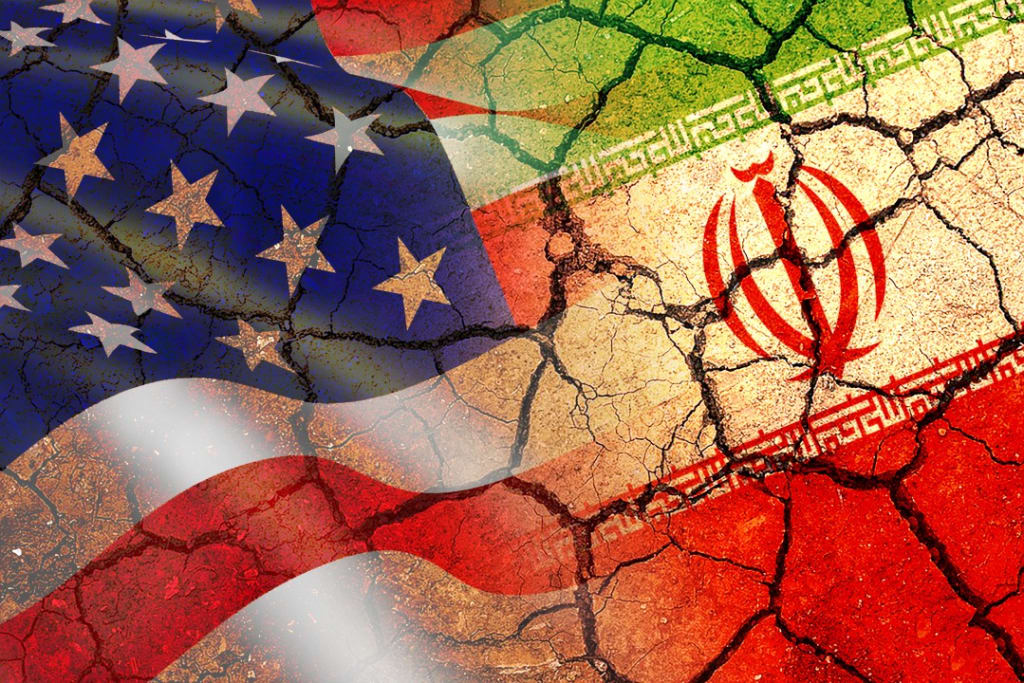Iran and the United States: From containment to cohabitation
The fundamental contradiction behind US policy in the Persian Gulf is the continued enmity between the US and Iran.

After the 1979 Islamic Revolution shattered U.S.-Iranian relations and established a religious government in Tehran, the world underwent a significant upheaval. Even within Iran's revolutionary politics, these shifts have been felt thanks to the growth of a popular reform movement that was solidified by the election of moderate president Mohammad Khatami in 1997. This development raised hopes for a rapprochement and contributed to a reduction in all-encompassing U.S. sanctions.
However, it appears that the more things change in U.S.-Iran ties, the more they remain the same. The deadlock with the United States is still raw and unsolved notwithstanding Iran's hesitant reform. The main U.S. concerns regarding Iranian foreign policy—support for terrorism and the pursuit of WMDs—have not been lessened by either Washington's measures or Iran's internal moderation.
U.S.-Iran Relations: The Historical Perspective
Under the guise of "dual containment" of Iran and Iraq, the Clinton administration imposed harsher U.S. sanctions in response to Iranian intransigence, particularly with regard to the Arab-Israeli peace process. In an attempt to lower Iran's government revenue, legislation and presidential orders in the mid-1990s broke most remaining economic links with the country. By applying diplomatic pressure, Washington aimed to increase international compliance with its embargo. One notable example of this was the 1996 Iran-Libya Sanctions Act (ILSA), which threatened secondary sanctions against investors in Iran's energy industry.
Nevertheless, the United States' attempt to economically isolate Iran was badly undermined when cooperation from Europe and Iran's other trading partners proved elusive. Owing to the fungible nature of the oil market, U.S. sanctions have had little impact on Iran's export earnings and little influence on its overall economic progress. Approximately 85% of Iran's foreign cash comes from its oil exports. In the meantime, the Islamic Republic launched a coordinated global campaign that significantly improved its diplomatic and economic ties with Europe, Japan, and the Persian Gulf Arab states, without lessening the impact of its most problematic policies.
The unilateralism of US sanctions and the strengthening of Iran's international connections, two opposing trends, progressively undermined the consensus regarding Washington's strategy toward the Islamic Republic and, for a while at least, put an end to the "dual containment" theory and some of its lingo. Instead, the US has used a combination of political messaging, sanctions, rewards, and threat management to manage its non-relationship with Iran. As a result, there has been an annoying back and forth between lost chances and perceived slights, and the same Iranian policies that the United States wants to stop have continued and even gotten stronger in several important areas.
Why a New Approach Makes Sense
For both governments, who stand to gain significantly from even little improvements to their engagement, the standoff is unhelpful. Direct communication between Washington and Tehran might further their shared objectives, which include handling the threat posed by Saddam Hussein, stopping the flow of drugs and instability from Afghanistan, and fostering greater stability in the unstable Caucasus region. Establishing trade relations would help Iran's struggling economy and provide US businesses access to an unexplored consumer market and enormous energy reserves that are ready for further investment.
Although the advantages of better relations may be obvious, there are several obstacles in the way of rapprochement, not the least of which is Tehran's adamant refusal of formal communication with Washington. More critically, the U.S. diplomacy has been completely destroyed by the spiraling bloodshed between Israel and the Palestinians, shattering the flimsy foundations of regional reconciliation. As a result, more urgent concerns like the ongoing Saddam Hussein situation take precedence over the Bush administration's assessment of Iran policy.
Analyzing a Shifting Iran
It is inevitable that the discussion of U.S. policy toward Iran will center on projecting the uncertain future of the Islamic Republic. President Khatami, the quixotic moderate, was re-elected to a second term on the strength of an enormous mandate for reform following the June 8 presidential elections. The unexpectedly high attendance and the president's clear victory margin gave Iran's beleaguered reformers more hope, but they also increased the bar for the remaining work. Khatami's capacity to advance his program, which prioritizes civil society and the rule of law, and to change Iran's position on matters that are important to Washington will remain limited due to his limited authority and formidable opponents.
Taking on an Uncertain Iran
Iran might be ready for further development, but political obstacles still stand in the way of any serious attempts to improve ties with the US. In order to ensure that Iran's leadership has an interest in peace and stability outside of its borders and to engage Iran in discourse on topics of immediate concern to the United States, a new strategy involving a more skillful combination of incentives and penalties must be implemented.
The employment of incentives suggests a reevaluation of the widely held belief that America's most effective weapon is isolation. Iran's contentious domestic politics and developing global pragmatism provide strong evidence that engagement can be a useful strategy for enhancing US influence.
The US-Iranian rift cannot be healed by a magic formula, but history does not have to repeat itself. It's time for America to take a fresh tack when it comes to Iran.






Comments
There are no comments for this story
Be the first to respond and start the conversation.